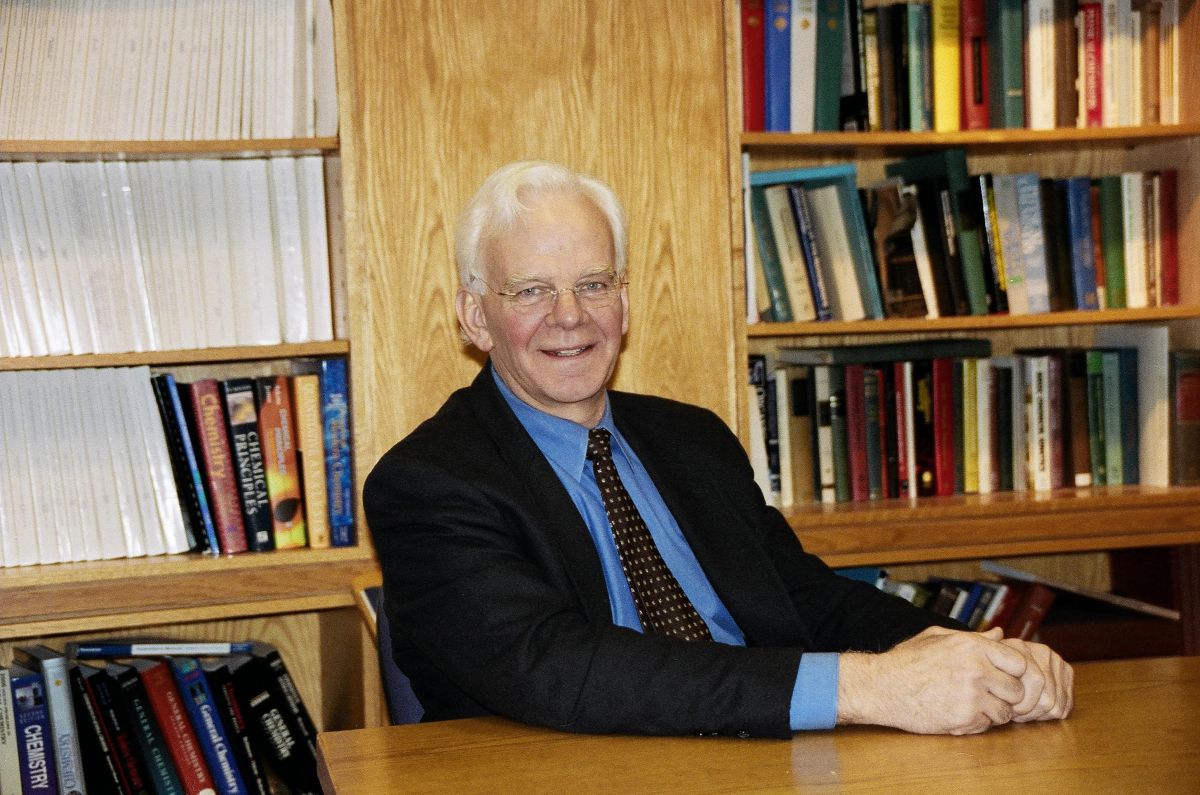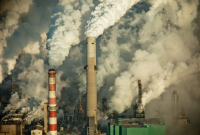Support strong Canadian climate journalism for 2025
We need to stop all fossil fuel emissions if we want to prevent irreversible climate change. Expanding a pipeline to transport fossil fuels is not a step in the right direction, a Harvard University climate change expert says.
Jim Anderson is the Philip S. Weld professor of chemistry at Harvard, a "titanic force" behind saving the planet from disintegration of the ozone layer. Anderson's "smoking gun" research — identifying the culprit damaging the ozone layer — catalyzed the 1987 Montreal Protocol to phase out chlorofluorocarbons (CFCs). He now says it’s not enough to talk about slowly decreasing carbon emissions, like Canada’s Paris Accord pledge to reduce its greenhouse gas emissions by 30 per cent from 2005 levels by 2030.
“When you look at the hard evidence, that is completely incapable of handling the problem,” Anderson said in an interview. “What’s required is terminating CO2 and methane emissions from the extraction, distribution and combustion of fossil fuels and then actually extracting CO2 from the atmosphere.”
The global climate is becoming more unstable, and much of that instability starts and ends in the Arctic, he said.
“In the last 35 years, we’ve lost 75 to 80 per cent of the permanent flowing ice in the Arctic,” Anderson said.
Climate change is reaching a point of irreversibility, due to smaller changes with significant implications, Anderson said.
"It’s the flow of heat into the subsystems of the climate that is controlling the timescale for irreversibility of the climate that is so profoundly worrisome,” Anderson said.
Greenland is a case in point. The Arctic ice cap serves as a cooling structure that keeps the Greenland ice structure solid all year. But as the Arctic ice cap is lost, then the entire structure becomes more unstable, he said.
“Greenland isn’t going to melt, it’s going to disintegrate. The forefront of research right now is forecasting how quickly that will happen and Greenland contains seven metres of sea level rise worldwide in its ice melt volume,” Anderson said.

Economic impacts make action a priority
Extreme weather events are expensive and as the difference between tropical temperatures and polar temperatures shrinks, they become more common, Anderson said.
“Last year, in 2017, severe storms, wildfires and droughts in the United States alone reached a loss of $320 billion. This is becoming a major economic consideration now,” Anderson said.
The answer is switching to renewable sources of energy, like wind and solar power, Anderson said.
"Nature provides us with 5,000 to 7,000 times as much energy created by the sun than all of humanity uses,” Anderson said. “It’s not as though Mother Nature hasn’t supplied us with the obvious ways to do this."
Both North America and China, which cover very large areas, have the potential of enough renewable energy and enough space to implement and operate the technology to more than meet their energy needs, Anderson said.
The move away from fossil fuels into renewable energies can also invigorate the economy, he said.
“It creates technical innovation and it creates jobs from the entire spectrum of the economic system," Anderson said. "You need high end research, you need research and development, you need production and you need installation of the systems."
Investing in and building fossil fuel pipelines – such as Canada is now doing with the Tran Mountain pipeline – is not a wise move, he said.
“If you’re putting in pipelines and you’re building systems that burn whatever is going through that pipeline, you’re becoming less competitive economically than by moving to renewables,” Anderson said.
But Anderson remains convinced that change is possible, in time to prevent irreversible climate change.
“It’s completely feasible, both technically and economically. There’s no technical or human barrier to this,” Anderson said.
Tracy Sherlock writes about B.C. politics for the National Observer. Send news tips and story ideas to [email protected].





Comments